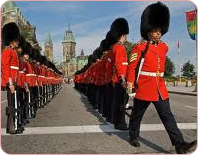
Royal Hibernian School
Introduction to Royal Hibernian Military School (1765-1924)
The Royal Hibernian Military School (1769 – 1924), Phoenix Park, Dublin, was originally the Hibernian Asylum created by the Hibernian Society, a philanthropic organization founded in Dublin in 1769 following the Seven Years War. The Society petitioned the King for a charter, which was granted. The Society’s aim was to help the orphaned children of soldiers who fell during the war, its services later being extended to the destitute families of soldiers leaving Ireland for overseas service.
When a regiment embarked for service overseas, six families per company only were allowed to accompany the battalion. Selection of the families permitted to travel was made by drawn lot. The families left behind were without support of any kind. They suffered misery and destitution. The burden of destitute military families fell hard on Ireland’s two main garrisons, Dublin and Cork. In 1785, a census revealed that in Dublin alone some 1,400 children whose father’s were dead or serving overseas were begging on the streets of the city. In 1806, responsibility for the Hibernian school was assumed by the military authorities. The institution was renamed the Royal Hibernian Military School.
In 1922, the boys and staff were moved to Shorncliffe and the premises taken over by the newly-formed government of the Republic of Ireland. The institution’s records were stored in Londong, but destroyed by fire during the London blitz of World War II in 1940. In 1924, those boys still in the RHMS school joined the Duke of York’s Royal Military School and the current documents in use – admissions registers, board minutes and commandant’s correspondence – moved with them.
The extant admissions registers were transferred to the National Archives, Kew, in January 2003. They are being transcribed by Peter Goble of Harrogate, who did similar research on the admissions registers of the Duke of York’s School for the period 1803 to 1880.
The material published on this web site has been drawn from a number of sources, including a hand-written history of the Hibernian School by two former pupils, Mr. F. H. Hawkins and Mr. E. Dillan (the history is now in the Library of the National Archives, Kew); some reports that have been found published in The Times, the records of the Genealogical Society of Ireland, The Irish Times, and two volumes of extant The Hibernian quarterlies in the possession of the DYRMS.
I wish to acknowledge the invaluable assistance of Ms Charlotte Brewer, MA (Oxon) for her editorial assistance and Liz Arnsby of Arnsby Design for re-designing this web site and bringing order to it where there was formerly chaos.
AWC/February 2004
Table of Contents - Royal Hibernian Military School
